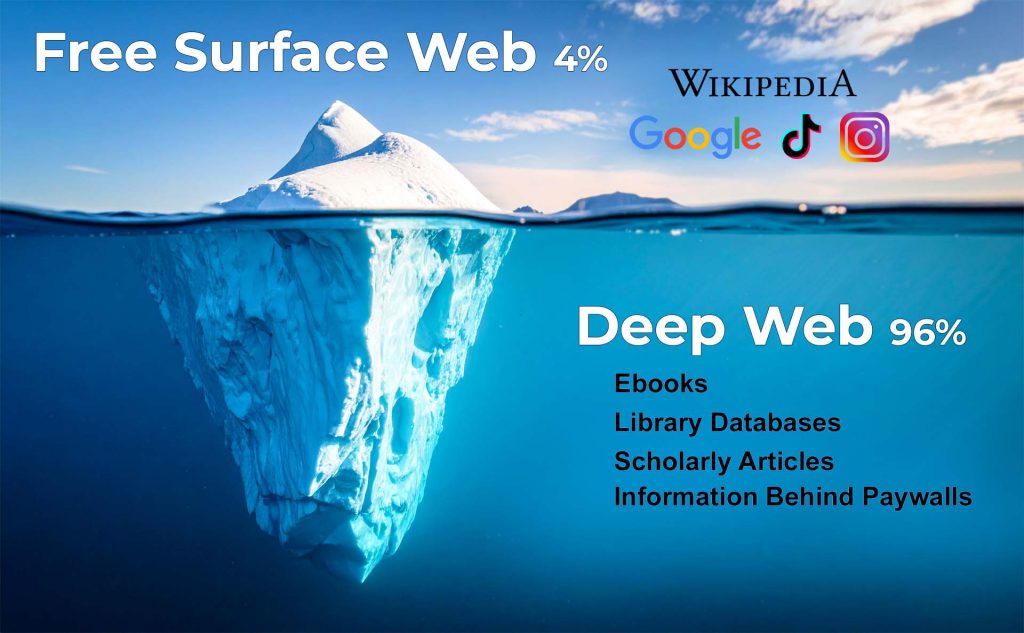Search Tools: Databases vs Search Engines
You’ll likely have to find a variety of sources for your research topic! For your research, the search tools you’ll likely use the most are search engines and library databases.
What are databases? Databases are organized collections of data. Library databases contain information about and provide access to books, eBooks, articles, and more! Students can use library databases to get access to information and sources that are not available to the general public without a fee.
You may have been told to avoid Google and other search engines for research in the past, but they can be powerful tools! Search engines are great places to find news and magazine articles, popular opinions, government websites (which often contain research reports and statistics), social media posts, commercial and organization websites, and more!

However, not all information is available in Google. When you use search engines, you’re just scratching the surface of all the information that’s stored online! Many scholarly sources, like peer-reviewed research articles, are kept behind paywalls, meaning you would need to pay or subscribe to the journal or publisher to access that information.
 That’s where the library databases come in!
That’s where the library databases come in!
Databases are organized collections of data. Library databases contain information about and provide access to books, ebooks, articles, and more!
Students can use library databases to get access to information and sources which are not available to the general public without a fee.
Scholarly sources are books or articles (referred to as peer-reviewed) written by researchers, professors, or other experts in the field and are usually based on research studies.
Scholarly articles from journals that are written by professors, scientists, and other experts and have gone through a review process by other experts. They are often reporting on a study they did.
